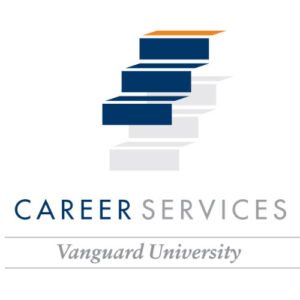As spring semester is underway and graduation looms ahead, one question poses itself to many eager seniors: What next?
Choosing between a career or pursuing higher education can be a confusing endeavor for many, so Career Services advisors Andrea Yanes and Enrique Rodriguez provided us with some answers on the prospect of graduate school.
What are the factors to consider when thinking about graduate school?
“There is definitely a lot to consider when really deciding if graduate school is going to be the right choice for you,” Yanes states. “I think looking into different factors like finances, timing, your motivation, and the application process is important.”
Yanes says that one essential thing to consider are the possible benefits graduate school can bring. “It could be greater employment opportunities, having greater career advancement in the future, or gaining different achievements. It could also be strengthening that marketability to an employer or to enhance your personal or professional development, increasing earning possibilities for the future.”
What are the differences between master’s and PhD programs?
Depending on the career path a student may choose, degree options vary.
“It really goes back to: What are your career goals?” Rodriguez states. “Different careers are going to require a PhD or master’s, so it depends on what your career goals in the long term look like.”
Rodriguez says that careers in research and teaching at a collegiate level generally recommend pursuing a PhD, while fields like Psychology may require a master’s degree to practice.
How do you find a good program for you?
Yanes suggests for students to do thorough research on programs that they’re considering. Take into account factors such as structure (online, in-person, hybrid, full-time, part-time), cohort size, and career development resources are good first steps to take when deciding if a program is a good fit.
“Every program at every university is going to be different,” Rodriguez states. “If there’s an opportunity to go to an open house, go and learn more about the program, meet the faculty members, and see if you can see yourself in that program.”
In addition, talking to potential advisors and faculty members can provide a strong indication of what program a student may want to join. Speaking with a professor may show students the type of work that they will be doing and how that can help further their career. Not only is it helpful, but “some applications on programs require you to list a certain amount of faculty members that you would like to get paired with,” Rodriguez states.
When should you begin preparing for graduate school?
“Make sure you prepare as early as possible. Start looking at least a year in advance,” Yanes says.
Application materials such as personal statements and letters of recommendation take time to develop. In addition, some programs require entrance exams. Allowing for time to study and retake exams is essential in preparing for graduate school.
Other programs might have prerequisite courses or ask for research experience. Being able to meet with undergraduate advisors to plan out prerequisite courses and talk about research opportunities will prevent students from having to complete last-minute requirements or pushing off applications for another term.
How many programs should you apply to?
Graduate school programs can be competitive, so Rodriguez recommends starting the search with five programs. This way, students can see what interest them and the type of program they want to apply to.
“A good number to apply to would be three. If you can afford more programs or if you’ve checked off the requirements, apply for as many as you can,” he states.
How can you fund your graduate education?
There are several options when dealing with finances. Fellowships are similar to undergraduate merit scholarships since they do not have to be repaid. Then, there are need-based aid options through FAFSA such as work-study employment and loans. Some students also work on campus as teaching assistants or research assistants.

Visit Career Services
What is one thing you want prospective graduate students to know?
“Visit Career Services as early as you can,” Rodriguez states. “From freshman to senior year, maybe your career path or the type of program you’re pursuing changes. It’s always good to do another assessment of your graduate school planning.”
Make an appointment with Career Services on Handshake and follow them on Instagram @vucareer.

 The Liturgical Calendar: Should Christians Observe It?
The Liturgical Calendar: Should Christians Observe It? Sweet Sensations with Baking
Sweet Sensations with Baking Embracing Authenticity in the Pursuit of Success: A Reflection on Journalism, Education, and Meaningful Academia
Embracing Authenticity in the Pursuit of Success: A Reflection on Journalism, Education, and Meaningful Academia Spring Concert: Music From Around the World
Spring Concert: Music From Around the World
Leave a Reply